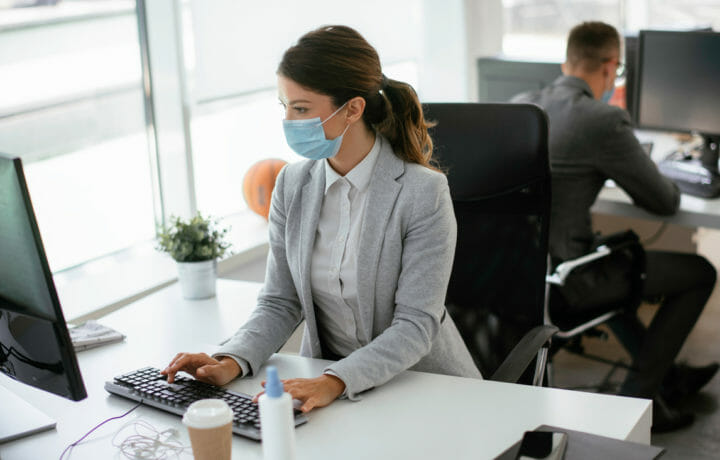UPDATE: President Biden’s announcement today made it official, mandating COVID-19 vaccines for federal employees and contractors. Additionally, the White House ruling mandates that organizations with over 100 employees will need to require COVID-19 vaccinations or commit to weekly testing of its employees, as part of the forthcoming rule from the Occupational Safety and Health Administration. Any healthcare facilities that receive Medicare or Medicaid will need to mandate full vaccination as well.
With the Delta variant at play, the White House has taken stricter action, removing opt-out choices for federal employees and contractors to submit to weekly COVID-19 testing. The ruling provides 75 days for federal employees and contractors to comply, excluding those with religious or medical exemptions. Those who ignore the mandate will face counseling and discipline actions.
With the Food and Drug Administration (FDA) approval of the Pfizer COVID-19 vaccine comes a vaccine mandate for U.S. service members, with more defined vaccination policies for federal employees expected to follow. Federal agencies are currently working to ensure that masks are being worn indoors in COVID hot spots, vaccination statuses are provided, and regular testing is being implemented, as part of the White House requirements given a few weeks ago.
Pentagon Mandates Pfizer Vaccine for Military
This week, the Pentagon announced that they are moving forward with mandating the Pfizer vaccine for the military; however, the exact timeline is still to be determined. As of August 18, the Pentagon reports that 301,634 DoD civilians and 1,077,981 service members have been fully vaccinated.
“Now that the Pfizer vaccine has been approved, the department is prepared to issue updated guidance, requiring all service members to be vaccinated. A timeline for vaccination completion will be provided in the coming days,” John F. Kirby said at a press briefing.
Kirby continues, saying, “These efforts ensure the safety of our service members and promote the readiness of our force, not to mention the health and safety of the communities around the country in which we live.”
The Pentagon also confirmed that Americans and eligible Afghan evacuees who exhibit signs or symptoms of the disease are being screened for COVID-19 at the Hamid Karzai International Airport in Kabul, Afghanistan, as well as, at the temporary safe havens or in the U.S.
Vaccines and COVID-19 Testing for Federal Employees and contractors
For now, federal employees and on-site contractors will simply need to report their vaccination status, according to the White House Safer Federal Workforce Task Force, which states, “Given the different safety protocols for individuals who are fully vaccinated and those who are not fully vaccinated, agencies need to ask about the vaccination status of federal employees and onsite contractors.”
Federal employees who desire to remain unvaccinated and onsite will need to get weekly COVID-19 tests, with refusal resulting in disciplinary action. If an employee or contractor cannot perform their work remotely (think classified environment needed) and they refuse to comply with the testing measures, they may be put on administrative leave. The testing logistics have been left up to each agency and office to establish. Employees with a disability or religious reason can check with their agency about accommodations.
And when it comes to what federal employees can or cannot due because of their vaccination status, the White House guidance explains, “Fully vaccinated individuals do not need to physically distance, undergo screening testing, or have restrictions on their official travel (although they still must comply with any local requirements and relevant CDC guidance for fully vaccinated individuals while traveling). Fully vaccinated individuals in areas of substantial or high transmission need to wear a mask in public indoor settings. Fully vaccinated individuals in areas of low or moderate transmission do not need to wear a mask.”
Employees who work remotely will not need to be subjected to weekly COVID testing. However, when on-site work is necessary, they will need to be tested for the weeks that they are on-site – if a vaccination status isn’t on file.
Whenever you’re Sick, Just Stay HOme
While the hope is that the pandemic will ultimately be in the rear-view mirror, a key takeaway already is simply learning to stay home when you’re sick. Whether or not you have COVID-19, no one wants your massive upper respiratory infection, and you no longer get a special star for going to work when you’re sick. So, the next time you feel a case of the sniffles coming on but you have a negative COVID-19 test, it’s still okay to rearrange your schedule so that you are not sharing your germs. Your coworkers and boss will thank you.
This article originally posted on August 25, and it was updated on September 9, based on new information from the White House.




